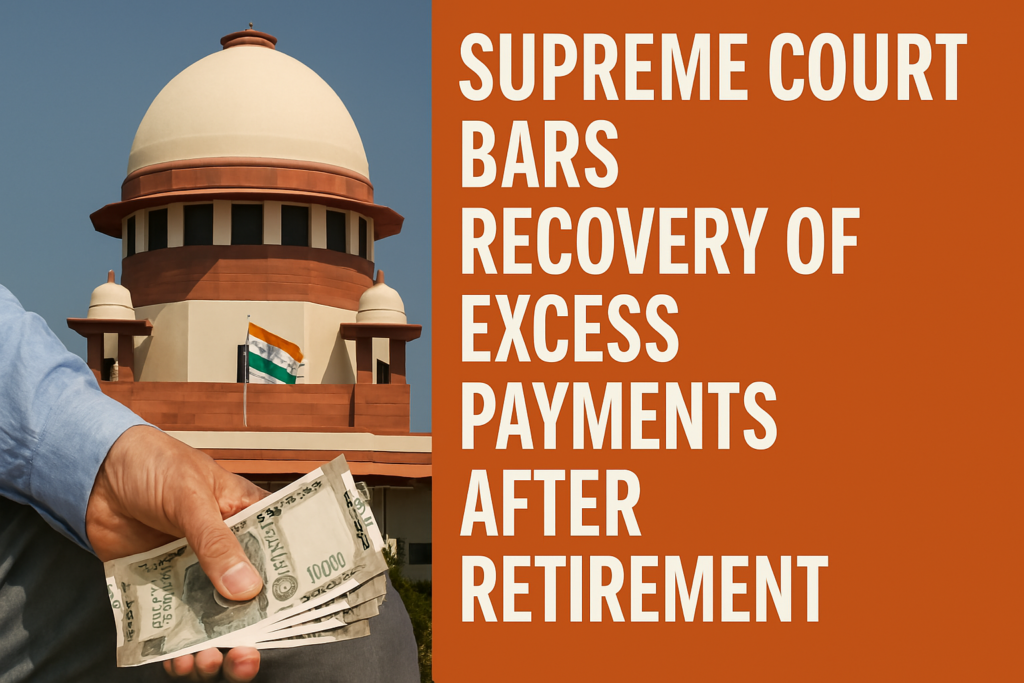The Hon’ble Supreme Court of India addressed the criminal appeals arising from the investigation into serious economic offenses committed by the Adarsh Credit Cooperative Society Limited (ACCSL) and other associated entities. The appeals involved allegations of large scale fraud affecting the economy and extensive misuse of public funds, spearheaded by the accused.
Case Background
Adarsh Credit Cooperative Society Limited (ACCSL) is a Multi-State Credit Cooperative Society, managed and controlled by Mukesh Modi, Rahul Modi, and their associates.
ACCSL was alleged to have siphoned ₹1,700 crores via illegal loans disbursed to 125 companies controlled by the accused. Such loans contravened the cooperative society rules as corporate entities cannot legally be members of multi-state cooperative societies.The outstanding balance of these fraudulent loans amounted to ₹4,120 crores as of March 31, 2018.
The Investigation Conducted by the Serious Fraud Investigation Office (SFIO) under Section 212 of the Companies Act, 2013, at the behest of the Ministry of Corporate Affairs.
It was found that the accused engaged in systematic forgery of financial documents to mask funds as legitimate loans from financial institutions.
Key Legal Issues
- The Accused individuals repeatedly evaded the execution of bailable and non-bailable warrants necessitating the proclamation proceedings under Section 82 of the Criminal Procedure Code (CrPC).
- Despite the serious charges under Section 447 (Fraud) of the Companies Act, anticipatory bail was granted to most respondents.
- The High Court ignored the mandatory twin conditions under Section 212(6) of the Companies Act:
- Public Prosecutor’s opposition
- Court’s satisfaction of non-guilt and no risk of repeat offenses
Court Observations
- Section 212(6) mandates stringent bail conditions for offenses under Section 447. These are critical safeguards to ensure accountability in cases of financial fraud.
- The High Court’s orders granting anticipatory bail were deemed perverse and contrary to law.
- Economic crimes involve deep-rooted conspiracies and have far-reaching consequences on the nation’s financial health.
- Judicial systems must treat such offenses with exceptional seriousness.
- Under Section 82 of the Criminal Procedure Code (CrPC), courts are justified in issuing proclamations when accused evade warrants by absconding or concealing themselves.
- Citing cases like P. Chidambaram vs. Directorate of Enforcement (2019), the Court reiterated that anticipatory bail is an extraordinary remedy, granted only in exceptional cases. Deliberate evasion and non-compliance with judicial orders disqualify applicants from receiving anticipatory bail.
Judgment
- The Supreme Court reversed the anticipatory bail orders granted by the High Court, holding that such relief was untenable in law. The Court directed:
- Ordered the accused to present themselves before the Special Court within one week.
- Bail applications to be decided based on merit.
- Appeals involving Akshat Singh, Naveen Kumar, and Mahesh Dutt Sharma, who were granted bail by the Special Court earlier, were dismissed.
Judgements Referred
Vijay Madanlal Choudhary vs. Union of India (2023)
- Bail under Section 45 of PMLA requires:
- Public Prosecutor’s opposition.
- Court satisfaction of the accused’s non-guilt.
- Twin conditions are mandatory, including anticipatory bail.
- Economic offenses are grave due to their societal and financial impact.
Union of India vs. Kanhaiya Prasad (2025):
- Cryptic bail orders not adhering to statutory conditions are “perverse.”
- Courts must evaluate facts and legal prerequisites before granting bail in economic crimes.
Prem Shankar Prasad vs. State of Bihar (2022):
- Bail granted during proclamation proceedings under Sections 82/83 CrPC was unjustified.
- Anticipatory bail cannot be granted casually in such cases.
P. Chidambaram vs. Directorate of Enforcement (2019):
- Anticipatory bail is an exceptional remedy.
- Economic offenses demand stricter scrutiny due to their impact on public trust and resources.
Y.S. Jagan Mohan Reddy vs. CBI (2013):
- Economic crimes involve deep conspiracies and significant harm to public funds.
- These offenses must be treated as serious threats to the nation’s economy.
Nimmagadda Prasad vs. CBI (2013):
- White-collar crimes with “cool calculation” damage the country’s economic structure.
- Courts must ensure such offenders face justice to maintain public trust.
Inder Mohan Goswami vs. State of Uttaranchal (2007):
- Courts may issue non-bailable warrants where an accused avoids appearance.
- Judicial discretion considers offense severity and likelihood of absconding.
State of U.P. vs. Poosu (1976):
- Issuing non-bailable warrants requires balancing offense gravity, evidence, and risk of evasion.
Srikant Upadhyay vs. State of Bihar (2024):
- Anticipatory bail is not a right but an extraordinary provision.
- Absconding individuals under proclamation proceedings cannot claim it.
Tarsem Lal vs. Directorate of Enforcement (2024):
- Courts can issue non-bailable warrants based on offense seriousness and absconding risks.


